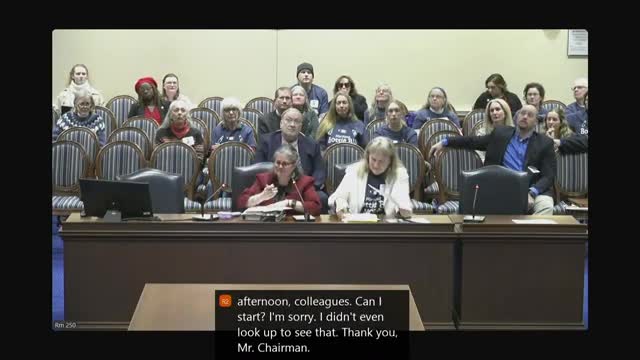Bill to require post‑consumer recycled content in plastic products draws support from environmental groups and pushback from industry
Get AI-powered insights, summaries, and transcripts
Subscribe
Summary
House Bill 69 would establish minimum post‑consumer recycled (PCR) content requirements for certain plastic products sold in Maryland. Proponents say mandates would create reliable markets for recycled material; manufacturers and retailers warned of implementation challenges and food‑contact safety concerns.
House Bill 69, sponsored by Delegate Jen Terrasa, would create a post‑consumer recycled (PCR) content program administered by the Maryland Department of the Environment (MDE). Producers of covered plastic products sold in Maryland would register, pay program fees, and meet phased minimum PCR requirements. The sponsor described the policy as a way to create stable demand for recycled plastic and stimulate recyclers and secondary markets.
"This legislation seeks to reduce the demand for virgin plastic, create a market for post consumer recycled material, and reduce greenhouse gas emissions," sponsor Delegate Jen Terrasa told the committee, noting targets and timelines in the bill were aligned with other states and the European Union, and that the program would be self‑funding.
Supporters included Sierra Club Maryland and the Maryland Recycling Network, which argued recycled‑content mandates paired with better collection policies (for example, a bottle deposit or EPR programs) are among the most effective ways to solidify recycling markets. Allison Kustic of the Association of Plastic Recyclers (APR) said the mandates should be paired with stronger collection systems and EPR to ensure feedstock supply for manufacturers that will be required to use PCR resin.
Industry witnesses — including the Maryland Retailers Alliance, AmeriPen (packaging industry), the Plastics Industry Association, and manufacturers — raised a series of concerns: (1) the need to align the bill closely with existing state laws in other jurisdictions to avoid compliance complexity; (2) food‑contact applications and FDA requirements that could limit use of PCR in some containers; (3) certification and enforcement mechanisms that could unduly burden suppliers and brand owners if not tailored; and (4) the availability, cost and color/contamination characteristics of PCR feedstock for certain resin streams.
The committee heard proposals for technical amendments: clarifying who is the producer for compliance (brand owner vs. supplier), allowing supplier documentation or limited self‑certification, proportionate fee structures based on virgin plastic tonnage, and creating exemptions or delayed timelines for food‑contact containers and certain rigid packaging categories.
Ending: The bill was left pending; the sponsor and association witnesses signaled willingness to work on technical and drafting amendments addressing certification, exemptions and alignment with collection improvements (including the bottle deposit and forthcoming EPR needs assessment).
